Posts
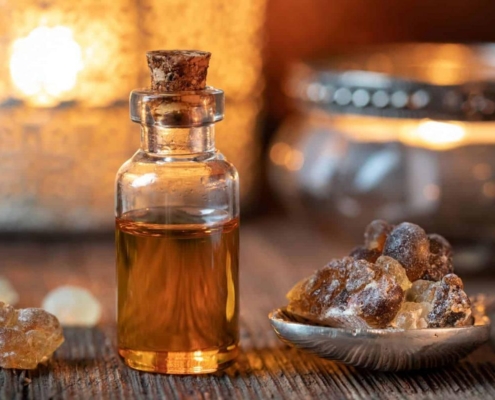
Sacred Scents: Exploring the Spiritual Benefits of Frankincense and Myrrh
Frankincense and Myrrh have a long history of traditional uses for thousands of years, spanning various socio-cultural aspects, including spiritual, religious, cosmetic, and medicinal. Both of them are natural resinous substances, respectively,…
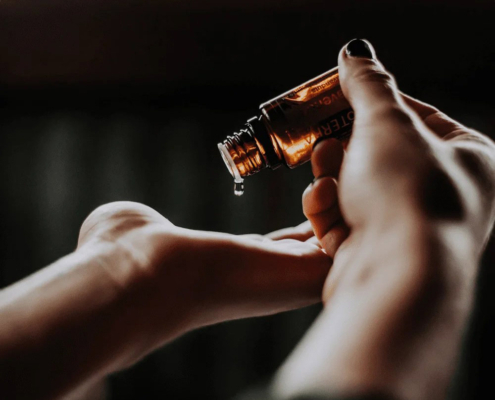
Can You Use Essential Oils on Skin as Perfume?
Essential oils have been prized from ancient civilizations to modern-day wellness enthusiasts for their aromatic properties and therapeutic benefits. By harnessing the natural scents of essential oils, you can create personalized perfumes…
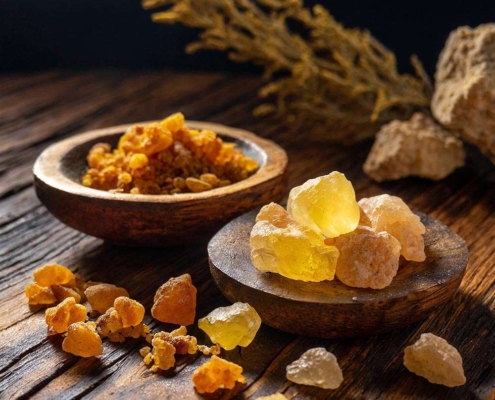
Creating Resinous Perfumes: A Novice Perfumer’s Guide
Resinous perfumes are a category of fragrances composed of various types of resins as a base note upon which the rest of the scents are built. Resins, also known as balms, are thick, sticky, viscous substances exudated from trees. When resins…
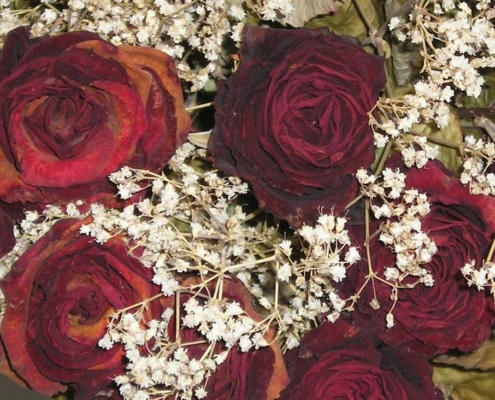
Perfume Aging: How Time Affects Natural Fragrances
Explore how aging influences the scent profile of natural perfumes and get tips for proper storage
Time affects natural fragrances in several ways, including color and scent profile changes, shelf life, climate change, and storage. The chemical…
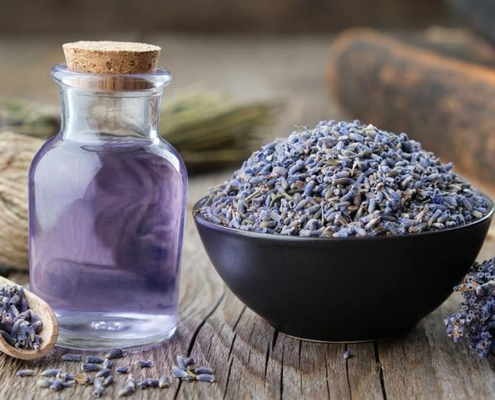
Aromatherapy Arsenal: Essential Oils for Earache
Earache is a common health concern affecting both adults as well as children. Those who have ever experienced it, know how painful they can be. In today’s critical world of drug side effects, many people are turning to natural essential…
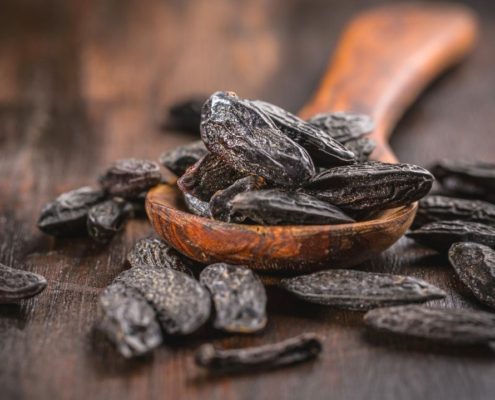
Exploring the Elegance of Tonka Perfume
The Tonka perfume is a captivating and versatile ingredient that has earned its place in the world of perfumery. Its rich, warm, and complex aroma adds depth and sophistication to a wide range of fragrances. Whether you prefer sweet gourmand scents, elegant floral compositions, or bold masculine fragrances, Tonka perfume has something to offer to everyone.
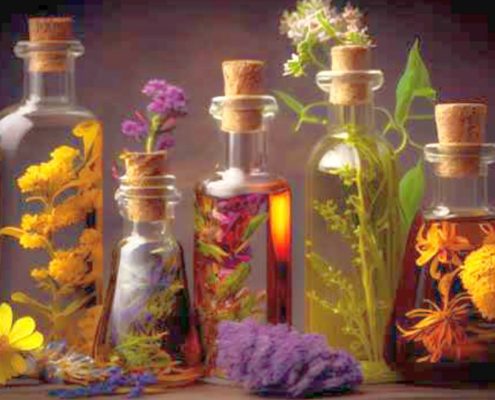
The Antiseptic and Antibacterial Properties of Essential Oils: Nature’s Potent Healers
In a world increasingly leaning towards natural and holistic approaches to health, essential oils stand out for their remarkable therapeutic benefits. These concentrated plant extracts, known for their aromatic qualities, have been used for…
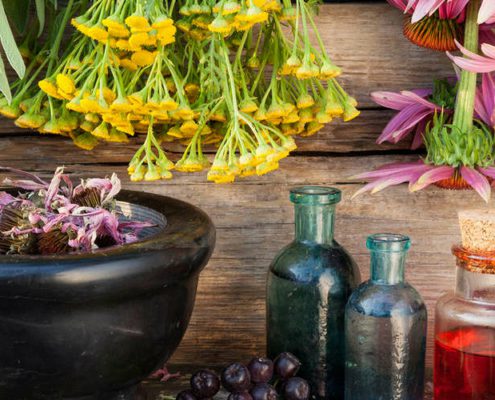
What is Aromatherapy
Aromatherapy refers to the use of aroma from plant compounds, essential oils in particular, for promoting health and well-being, which has been around for millennia. It encompasses several traditional complementary and alternative therapies…
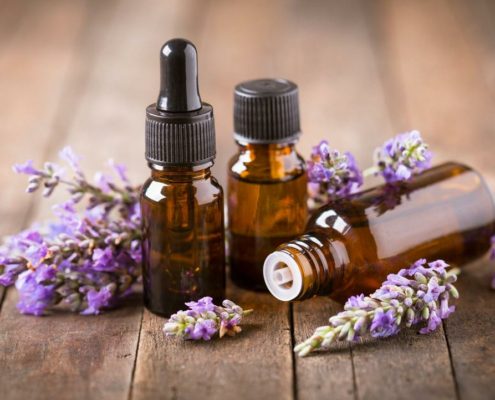
Essential Oils for Flu
Getting the flu or its symptoms every so often isn’t uncommon, particularly during seasonal changes. Flu viruses are continuously evolving, making it harder to treat them at home, and sometimes could be life-threatening. The use of essential…
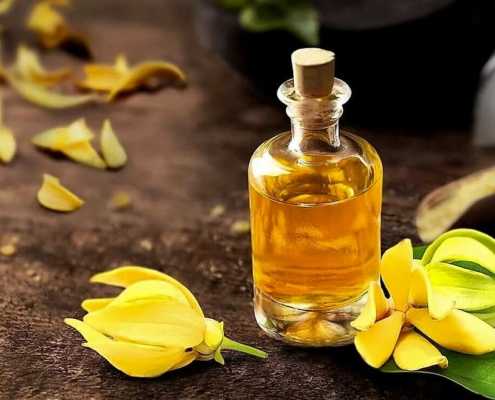
Ylang-ylang – Properties, Distillation, and History
Ylang-ylang oil has strong anti-inflammatory, antifungal, and antibacterial properties. These actions help alleviate fungal infections and symptoms of malaria.
Ylang-ylang has long been used for a range of therapeutic purposes. Modern scientific research has also substantiated many traditional benefits.

Botanical Perfumery
Botanical perfumery is the art of blending fragrance ingredients of botanical origin such as roots, flowers, seeds, resins, and gums to prepare aesthetically pleasing herbal fragrances. In Medieval Europe, fragrant botanical oils became popular for wellbeing and healing, which meant that the professions of physicians or apothecaries and perfumers became closely intertwined.

Essential Oils for Headaches
Essential oils offer a more effective and safer way to get rid of headaches without using medicines that often come with many unpleasant side effects. The best part of essential oils is that they not only reduce the symptoms of headaches but also help to address the underlying root of the issues causing the headache.
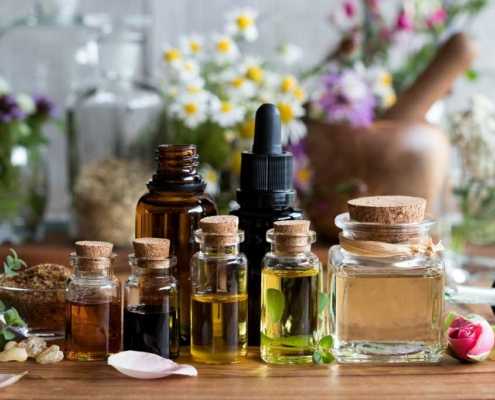
Antibacterial Essential Oils
The concept of using essential oils to combat infections isn’t anything new. Besides, modern studies found that certain essential oils can effectively kill micro-organisms including bacteria, viruses, and fungi without becoming resistant, making these essential oils great antimicrobial resources in modern medical science.
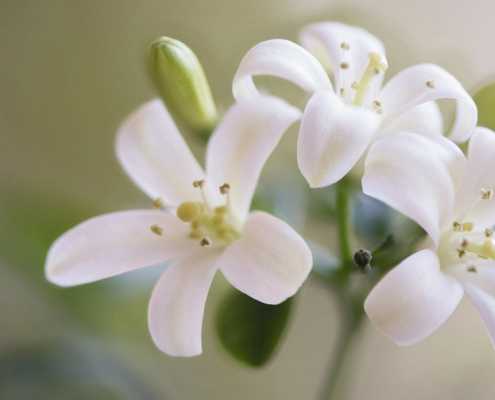
Jasmine Perfume – Properties, Distillation, and History
Jasmine perfume oil has diverse uses and benefits, making it one of the most expensive natural oils in the world. About 1 million flowers are required to produce 1 kg of jasmine absolute. Jasmine, popularly known as "the Queen of the night", helps to maintain emotional balance by promoting euphoric and peaceful feelings.
Jasmine helps to alleviate stress and anxiety without producing any sedative effects. Therefore, it’s also useful in reducing inflammatory conditions caused by emotional stress.

Rose Attar
Rose Attars are typically natural essential oils derived from the petals of diverse types of roses. Rose attars are made through the steam distillation process while rose absolutes are collected through the solvent extraction process.
The absolutes are more commonly used in the perfumery industry and the techniques of production originated in Persia.
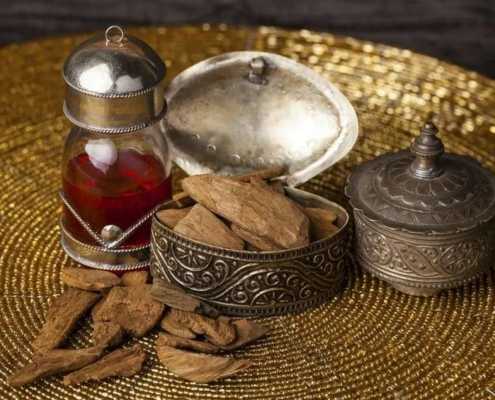
Oud Perfumes
Oud is derived from the wood of agar tree (Aquilaria malaccensis) that typically grows in Southeast Asian countries.
When a specific mold infection occurs in the wood, the plant excretes a resinous substance that is dark and highly scented. This resin is often called "black gold" or "liquid gold". The term "Oud" refers to both the resinous dark wood and the liquid oil distilled from it.
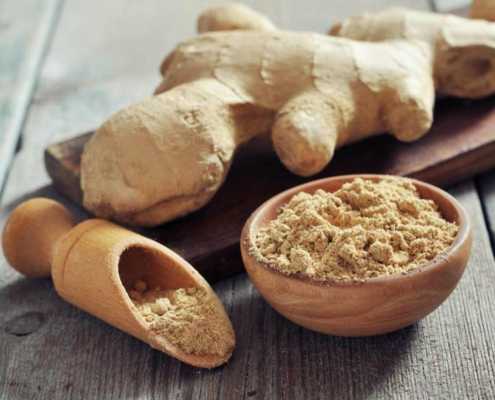
Ginger Essential Oil Benefits
Benefits of ginger oil in medicines
Ginger oil’s digestive and detoxifying actions enhance the digestion process and help to eliminate toxins from the body. Besides, it alleviates discomforts associated with the bowel and stomach, including dyspepsia, diarrhea, stomach ache, flatulence, spasms, and colics.












